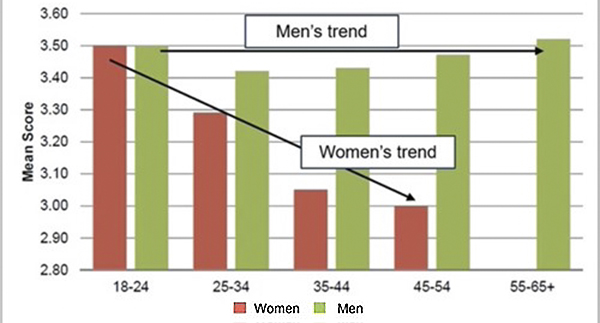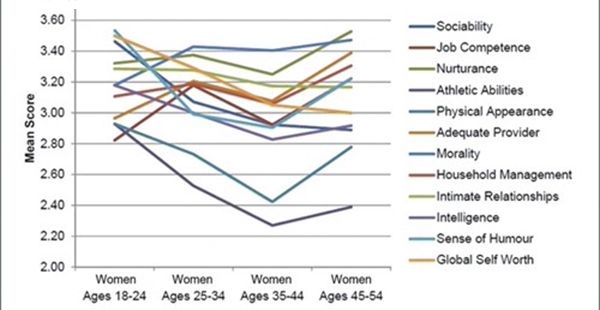Project diversity needs to address leaky pipeline professionals
Contents |
[edit] 'We can’t recruit our way to greater diversity'
In APM's latest article about issues affecting women in the project profession, Jenn Harris, Programme Manager at the Department for Environment, Food and Rural Affairs (DEFRA), discusses her research, which shone new light on factors preventing women from progressing in male-dominated industries.
"Of the small minority of women joining construction, the vast majority leave within five years.”
This statement by The Smith Institute, a public policy think tank, sums up the concept of ‘the leaky pipeline’; the way that certain groups of people fail to progress within particular careers or industries, leading to underrepresentation.
For Jenn Harris, this topic is of particular interest. Jenn has worked as a civil servant delivering projects and programmes for UK government departments for the past five years. Prior to this, she worked in the private sector within the construction and built environment industries. It was during this phase of her career that she was inspired to review gender disparity in the workplace, as part of her Master’s degree.
“I was really fascinated by how masculinities developed; especially in construction because it’s such a male-dominated industry,” Jenn said. “I was surrounded by young, ambitious women who had done apprenticeships and come in as trainees. But there were very few senior leaders that were women, and no women directors. Clearly, the profession was leaking female talent. I wanted to look at barriers for women entering, but also to them progressing and remaining. I also looked at coping mechanisms for women. What I wanted to know was ‘do women feel differently about themselves than men do throughout their careers’?”
[edit] The resulting report
Gender in the Construction Industry: Literature Review and Comparative Survey of Men’s and Women’s Perceptions in UK Construction Consultancies – The report examined these differences in self-perception between men and women. From her research, Jenn found that:
- For women, Global Self-Worth (i.e. their perception of worth, such as liking how they’re leading their life, or liking the kind of person they are) decreased significantly as they got older.
- For men, Global Self-Worth remained relatively constant throughout their lives.
Jenn also discovered through her research that women’s self-perception for other personal attributes follows a ‘dip and rise’ pattern through the age groups. This correlates with other research that has found women tend to have more complex ‘zig zag’ career paths.
- Source: Messer and Harter cited in Gender in the Construction Industry: A self-perception survey
[edit] Conclusion
The conclusion is that strategies to retain and develop female employees should take their career paths into account. Doing so not only represents a moral imperative, but can also result in a competitive advantage.
Jenn explained: “When you look at the leaky pipeline, you see that women only make up 12.5% of the construction industry workforce…GMB [the UK general trade union] has reported that it will take almost 200 years to achieve gender equality.
“Why does this matter? Gender diverse companies are 25% more likely to achieve above-average profitability. Also, construction companies with women in executive roles experience above-average financial performance.”
Jenn remains passionate about issues of equality and representation at all levels. She acknowledges the efforts of private sector employers and the government to address imbalance, and feels good progress has been made in recent years to address overt bias and discrimination. However, she expressed concern that ingrained biases may still be holding back women managing projects, programmes and portfolios.
Women to whom Jenn has spoken have expressed support for organisations to introduce quota systems to increase gender diversity at all levels of the workforce, as well as supporting inclusion of other underrepresented groups.
[edit] Zig zag career paths
She also urged employers seeking to address gender inequality to consider the notion of the ‘zig zag’ career path. Women leave the construction industry in greater numbers in their forties. Developing existing employees and recruiting women who are re-joining the workforce – rather than focusing exclusively on recruiting school, college and university leavers – can help stem the loss of talent and support retention that will help more women progress to senior-level roles. This will lead to greater diversity at leadership level, and overall.
“Lots of people are needed in construction to sustain it as an industry…women who are returning to work have a lot to bring to the table,” said Jenn. “A lot has been said about things like T Levels and bringing in new graduates. But what happens when someone leaves to have a child? Or to people who are seeking a career change after being in the military? That experience can give people so many skills that are transferrable in construction projects.
“It’s a multi-layered problem that involves not only private companies and government, but also individual actions, society – everyone. We all have a role to play in making our society more inclusive.”
This article appears as "'We can’t recruit our way to greater diversity'. Calls to address leaky pipeline in the project profession" dated February 2, 2023.
--Association for Project Management
[edit] Related articles on Designing Buildings
- Accelerating diversity key to delivering projects fit for end users.
- Accelerating black inclusion in project management.
- Building diversity in construction.
- Diversity, equality and opportunities in the construction industry
- Diversity in construction needs to be top priority.
- Diversity and inclusion statistics.
- Diversity in the construction industry.
- Levelling the playing field, womens views on achieving success in the project profession.
- Reflections on the Women in Project Management conference 2022 into 2023.
- Sustainability through diversity and multi-culturalism
- Unequal pay barrier for women in project management.
- Women in Project Management Conference.
Featured articles and news
Repairing historic stone and slate roofs
The need for a code of practice and technical advice note.
UKCW London to tackle sector’s most pressing issues
AI and skills development, ecology and the environment, policy and planning and more.
Managing building safety risks
Across an existing residential portfolio; a client's perspective.
ECA support for Gate Safe’s Safe School Gates Campaign.
Core construction skills explained
Preparing for a career in construction.
Retrofitting for resilience with the Leicester Resilience Hub
Community-serving facilities, enhanced as support and essential services for climate-related disruptions.
Some of the articles relating to water, here to browse. Any missing?
Recognisable Gothic characters, designed to dramatically spout water away from buildings.
A case study and a warning to would-be developers
Creating four dwellings... after half a century of doing this job, why, oh why, is it so difficult?
Reform of the fire engineering profession
Fire Engineers Advisory Panel: Authoritative Statement, reactions and next steps.
Restoration and renewal of the Palace of Westminster
A complex project of cultural significance from full decant to EMI, opportunities and a potential a way forward.
Apprenticeships and the responsibility we share
Perspectives from the CIOB President as National Apprentice Week comes to a close.
The first line of defence against rain, wind and snow.
Building Safety recap January, 2026
What we missed at the end of last year, and at the start of this.

























Comments
[edit] To make a comment about this article, click 'Add a comment' above. Separate your comments from any existing comments by inserting a horizontal line.